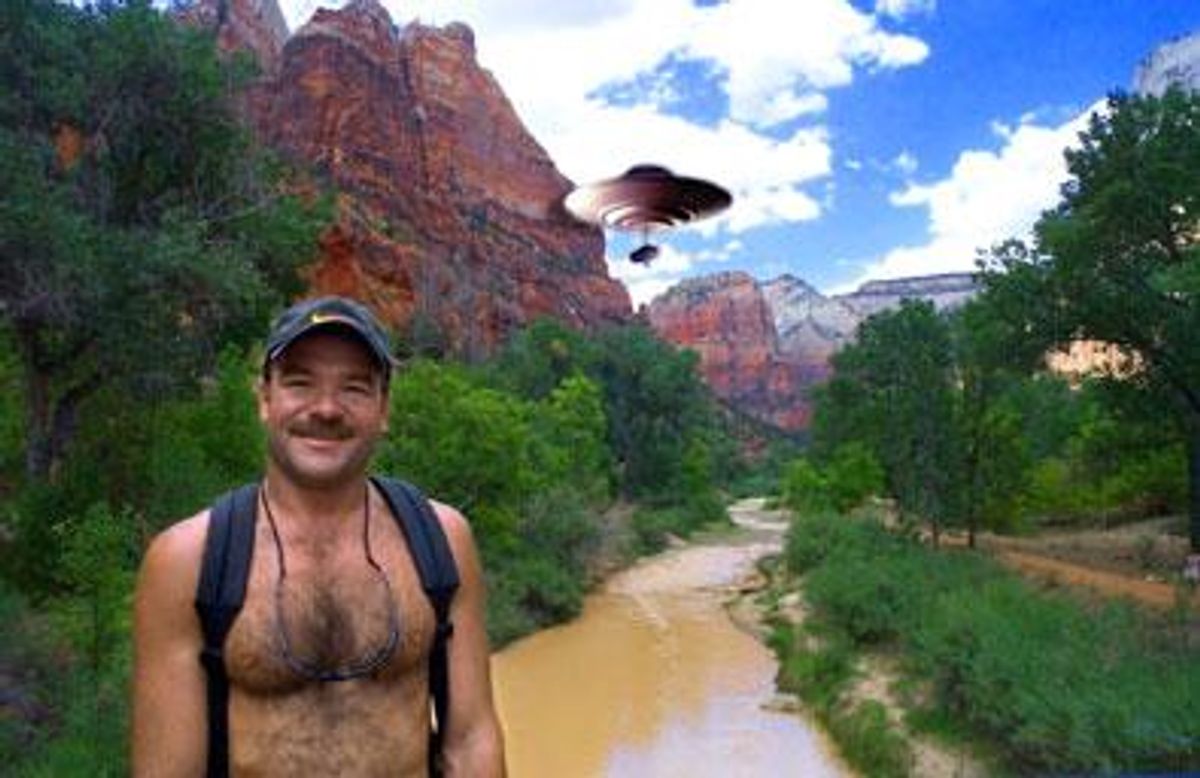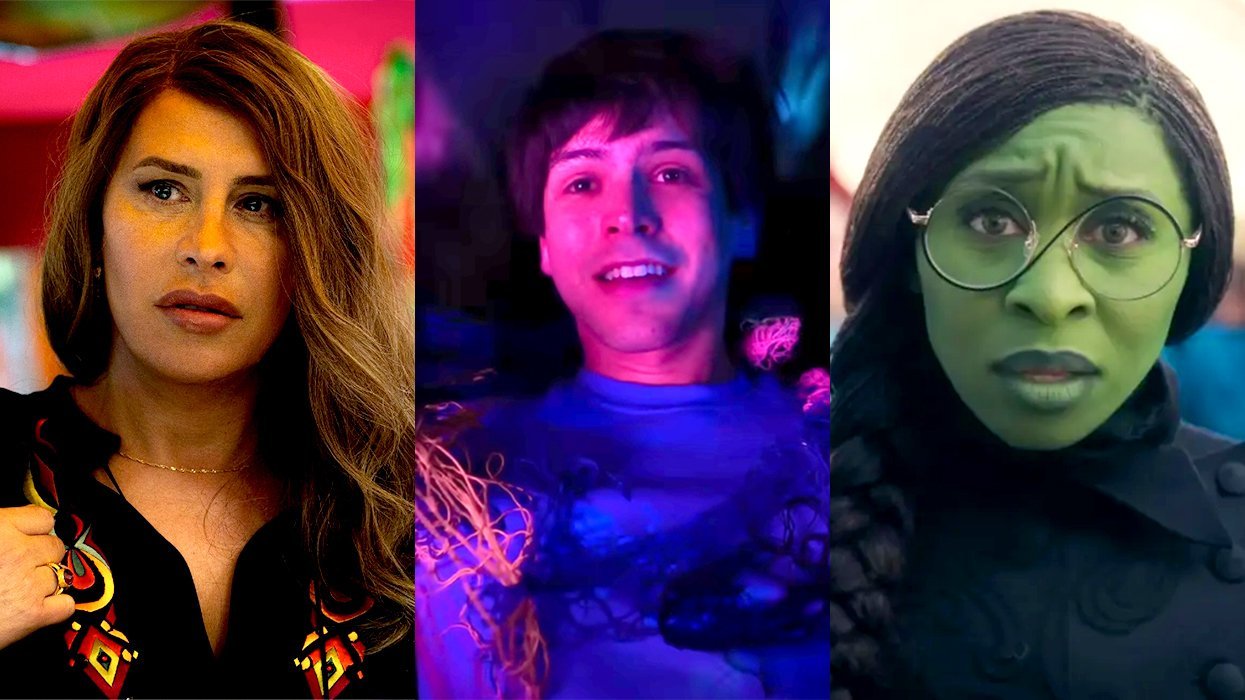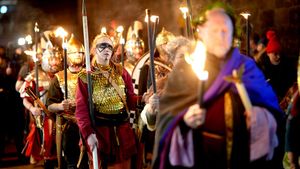CONTACTStaffCAREER OPPORTUNITIESADVERTISE WITH USPRIVACY POLICYPRIVACY PREFERENCESTERMS OF USELEGAL NOTICE
© 2024 Pride Publishing Inc.
All Rights reserved
All Rights reserved
Scroll To Top
By continuing to use our site, you agree to our Private Policy and Terms of Use.
How old is the universe? Are there other planets like Earth out there? We have asked these questions around campfires and in universities for centuries. Mark Legassie, a systems engineer and physicist for NASAs Jet Propulsion Laboratory, explores the answers through his work on the Spitzer Space Telescope and PlanetQuest programs. Spitzer, the largest infrared telescope ever launched in space, obtains images by detecting the heat radiated by objects and has already led to many new discoveries about our universe. Scheduled for launch in 2010, PlanetQuest will combine the light from two telescopes and will permit imaging targets and determining positions with an accuracy hundreds of times better than Hubble. As a science test designer on Spitzer, Mark had the opportunity in 2003 to pay the ultimate tribute to two gay and lesbian organizations: launching them into outer space! Onboard Spitzer is a commemorative plaque with pictures of the project employees, as well as logos of two of the largest non-profit gay and lesbian recreational organizations in the world: California Great Outdoors and New Englands Chiltern Mountain Club. I got to know Mark, chairman of the California Great Outdoors, when he led me and 30 other campers on a trip with Great Outdoors to Zion National Park. He brought along his telescope, a massive amateur instrument whose case fills the bed of his pick-up truck. One of the highlights of the trip was when Mark showed us Jupiter, Saturn, and the M3 Globular Cluster, a startlingly beautiful grouping of 100,000 suns in outer space. Mark explained that this cluster is so dense with stars that habitants on or of its worlds would never see night. After the trip, I thought the readers of Out might also like a glimpse of a gay rocket scientist. What gives you lift-off? I could say astronomy and camping, but its really the social interactions that those two interests have brought to my life. I love having someone else to say Wow with and surrounding myself with friends. How did you get interested in outer space? I attribute that to growing up in a rural area. Free from city light pollution, northern Maine has the darkest night skies Ive ever seen. My cousin Pat and I would lie on our backs, looking up at the stars. Wed stare in awe, wondering if the universe goes on forever and everand what or who is on the other side. Is there life on other planets? Definitely. And I think well discover it within our lifetime. How do you think well discover it? First, well most likely find non-intelligent life formsmaybe on Marsusing robotic or manned spacecraft. Eventually, with more powerful telescopes, well look for telltale signatures of intelligent life on other worlds. A woman colleague of mine at JPL leads a NASA program to determine what these signatures should look like and may include things such as alien-made pollution. In other words, studying the destructive pollution made by humans on Earth could help us find intelligent life forms on other worldssort of an oxymoron. What are your feelings about UFOs and Roswell? I have to say Im skeptical about UFOs. A lot of the sightings are probably from people who have had too much to drink or smoke. About Roswell, do I think our government could have lied about a crashed flying saucer? Absolutely. Do you have any scientific heroes? Yes. At the risk of sounding nerdy, Gene Roddenberry is near the top. Hes not a scientist but through Star Trek he has inspired me and countless others to pursue a career in physics, astronomy, and space exploration. Hes really made outer space seem inclusive and fascinating. Was it difficult coming out in NASA? Not in the least. The first week I started this job, I immediately met other gay people working here through a social group called Lambda. JPL also has a domestic partnership program, and sexual orientation is included in workplace anti-discrimination policies. Its a terrific place for gay people to work. Do you think well discover gaylians? Im sure theres a gay planet out there that someday well be vacationing at. Although what would we call it? [Pause] Uranus is already taken. Would gay people survive in outer space better than straight people? Well, up until recently, most astronauts were men. So if you went on a two-year trip to Mars, a gay astronaut might have a better time than a straight astronaut. Although he would probably have to listen to endless jokes about being an asstronaut. Whos better: Lieutenant Uhuru or Princess Leia? I love them both, but Id have to go with Lieutenant Uhuru. Even gay men think shes hotter. Web sites to check out: Mark Legassies personal Web site California Great Outdoors Chiltern Mountain Club Spitzer Space Telescope Planet Quest telescope Jet Propulsion Laboratory
From our Sponsors
Most Popular
41 male celebs who did full frontal scenes
September 16 2024 2:02 PM
39 LGBTQ+ celebs you can follow on OnlyFans
November 19 2024 9:39 AM
33 actors who showed bare ass in movies & TV shows
September 17 2024 5:43 PM
26 LGBTQ+ reality dating shows & where to watch them
December 10 2024 12:38 PM
21 times male celebrities had to come out as straight
November 19 2024 3:33 PM
17 queens who quit or retired from drag after 'RuPaul's Drag Race'
November 30 2024 12:26 AM
52 steamy celebrity Calvin Klein ads we'll always be thirsty for
August 27 2024 1:08 PM
15 things only bottoms understand
October 08 2024 5:18 PM
15 gay celebrity couples who make us believe in love
October 03 2024 5:43 PM
A gay adult film star's complete guide to bottoming
September 16 2024 8:50 AM
Latest Stories
Netflix to stream Women's World Cup—these queer soccer players paved the way
December 21 2024 12:00 PM
Celebrating extraordinary leaders of the Out100 Special
December 21 2024 9:00 AM
Ranking the top 10 albums released by LGBTQ+ artists in 2024
December 20 2024 7:20 PM
Frotting vs. Frottage: Here are the key differences you should know
December 20 2024 6:50 PM
What's your battle cry? The 'Wicked' sing-along album is finally here
December 20 2024 6:15 PM
What is T-Boy Wrestling? Learn more about this sport for trans men
December 20 2024 3:48 PM
Where and how to watch the 2024 Out100 Special
December 20 2024 3:37 PM
Out and About with Billy Eichner
December 20 2024 3:28 PM
35 pics of David Barton & Susanne Bartsch Toy Drive 2024
December 20 2024 1:16 PM
Friday, December 20
December 20 2024 12:10 PM
Brian Jordan Alvarez accused by former costar of sexual assault
December 20 2024 9:42 AM
Take a sneak peek at 'The Jinkx and DeLa Holiday Show' drag extravaganza
December 20 2024 9:15 AM
'Drag Race's Salina EsTitties: 'RuGirls are struggling' financially
December 20 2024 8:48 AM
Queer cinema triumphs: Best film performances by LGBTQ+ actors in 2024
December 19 2024 7:26 PM
Jolly & horny! These sexy Santas showed up in Speedos for a good cause
December 19 2024 5:06 PM
These iconic pop songs prove that Justin Tranter's pen game is unmatched
December 19 2024 4:43 PM
Keke Palmer on 'Master of Me', Queen Latifah's mentorship, & uplifting Black queer people
December 19 2024 3:00 PM

















































































Sexy MAGA: Viral post saying Republicans 'have two daddies now' gets a rise from the right